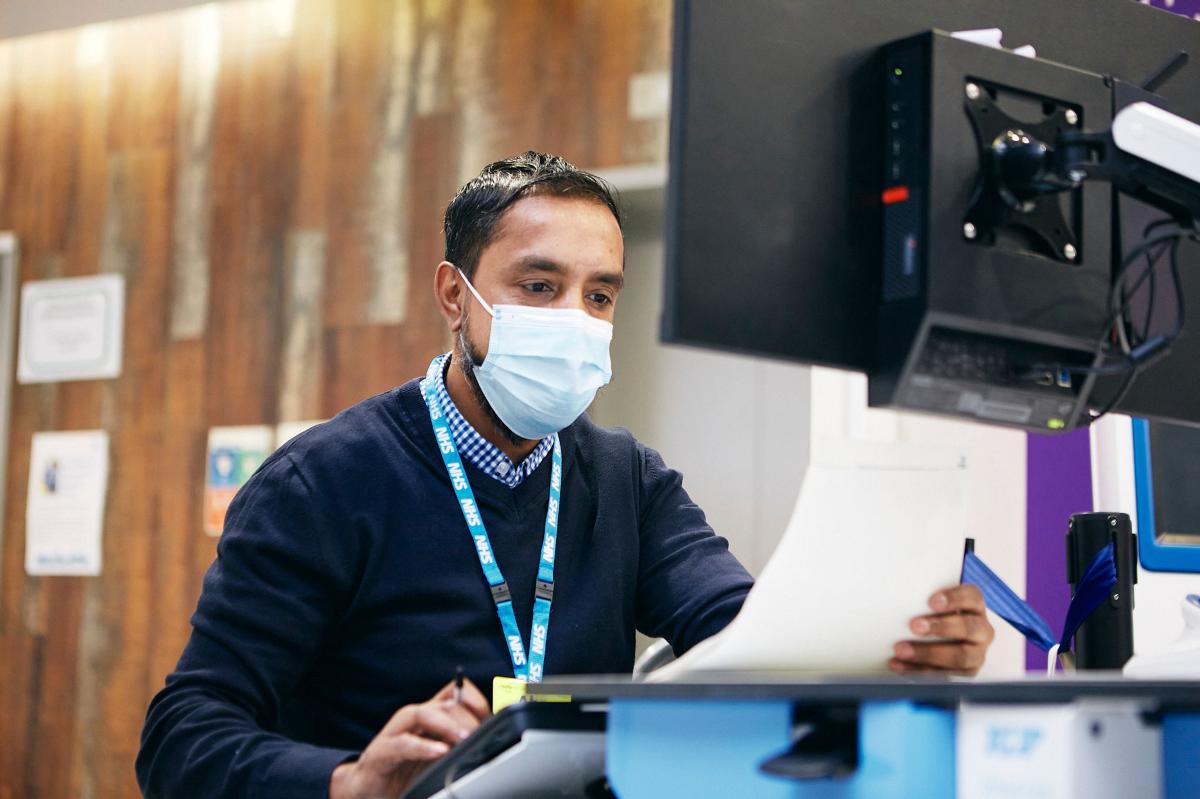QI in Covid-19: how we kept improving during the pandemic

The launch of our quality strategy in November 2019 was an important moment for the trust. The 24 page document set out how we would use quality improvement (QI) methodology to become a good and outstanding group of hospitals.
Within weeks of the strategy landing on desks, the world had changed. How we worked, where we worked and the things we were working were flipped on their head.
Despite this, colleagues across Barts Health have continued to apply the QI skills they had learnt since the WeImprove programme began three years ago.
“The pandemic presented so many urgent problems, particularly in the early months”, says Barts Health director of Improvement Chris Gordon. “Our staff threw themselves at these problems, applying their QI skills, sometimes without realising it.
“What we saw was our longer-term projects pausing as we all came together to fight the virus. In their place were lots of smaller projects, where staff used quick-fire PDSA (plan, do, study, act) cycles to find solutions and make improvements.”
Examples of this include setting up family liaison hubs for our patients in critical care and establishing a network of blood test locations across our boroughs to reduce visits to our hospitals.
There’s no sign that the pandemic has quelled interest in QI
In September 2020 QI training restarted with an introductory course called First Steps in QI. To date, more than 400 people have completed the training.
“There’s no sign that the pandemic has quelled interest in QI” says Jen Leonard, programme director. “If anything, staff are even more interested having seen the value of it during waves one and two.
“Feedback on the course has been incredibly positive. Crucially, we’ve also seen an increase in the number of QI projects being registered on LifeQI (up from 90 in 2019 to 400 now), which is helping us to capture all of the amazing work taking place.”
46 improvement coaches began their training in April and a further cohort is lined up for January, bringing the total to well over 100. Help is also available in the form of Open School, a free online training resource from the Institute for Healthcare Improvement which staff can complete at their own pace.
“The message to anyone interested in learning about QI is ‘go for it’”, says Chris. “From online training to support from a coach or our growing list of improvement advisors, there is so much expertise available.”
The rapid expansion of training has helped our teams flourish with improvement projects such as those in anaesthesia and outpatient services now widely established as best practice.
QI has the potential to unpick the most complex problems.
Covid continues to grip the country and our staff are preparing for a busy winter. Whatever happens, says Chris, QI has an important role to play in 2022 on beyond.
“Whether it’s transforming our emergency care services, restoring planned surgery or rethinking what safe means for maternity or deteriorating patients, QI has the potential to unpick the most complex clinical and non-clinical problems.
“The last three years have shown the power of applying improvement methodology and the passion across the organisation to do so.”
WeImprove in numbers
- 400: Over 400 colleagues have started out on their QI journey by completing our introductory First Steps course
- 135: A further 135 people have passed IHI’s Open School programme, learning about QI in their own time
- 104: We’ve trained more than one hundred QI coaches since 2019 and eight improvement advisors who are helping to grow QI expertise across the group
- 388: There are now almost 400 improvement projects registered on LifeQI, up from 90 two years ago.
